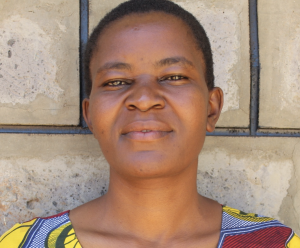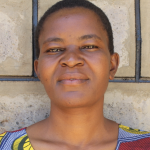The 665 students of Muchanja Primary School have no water source on their campus, leaving them without reliable water to meet their daily needs. At 6 am every morning, students take jerricans to a nearby spring to collect water.
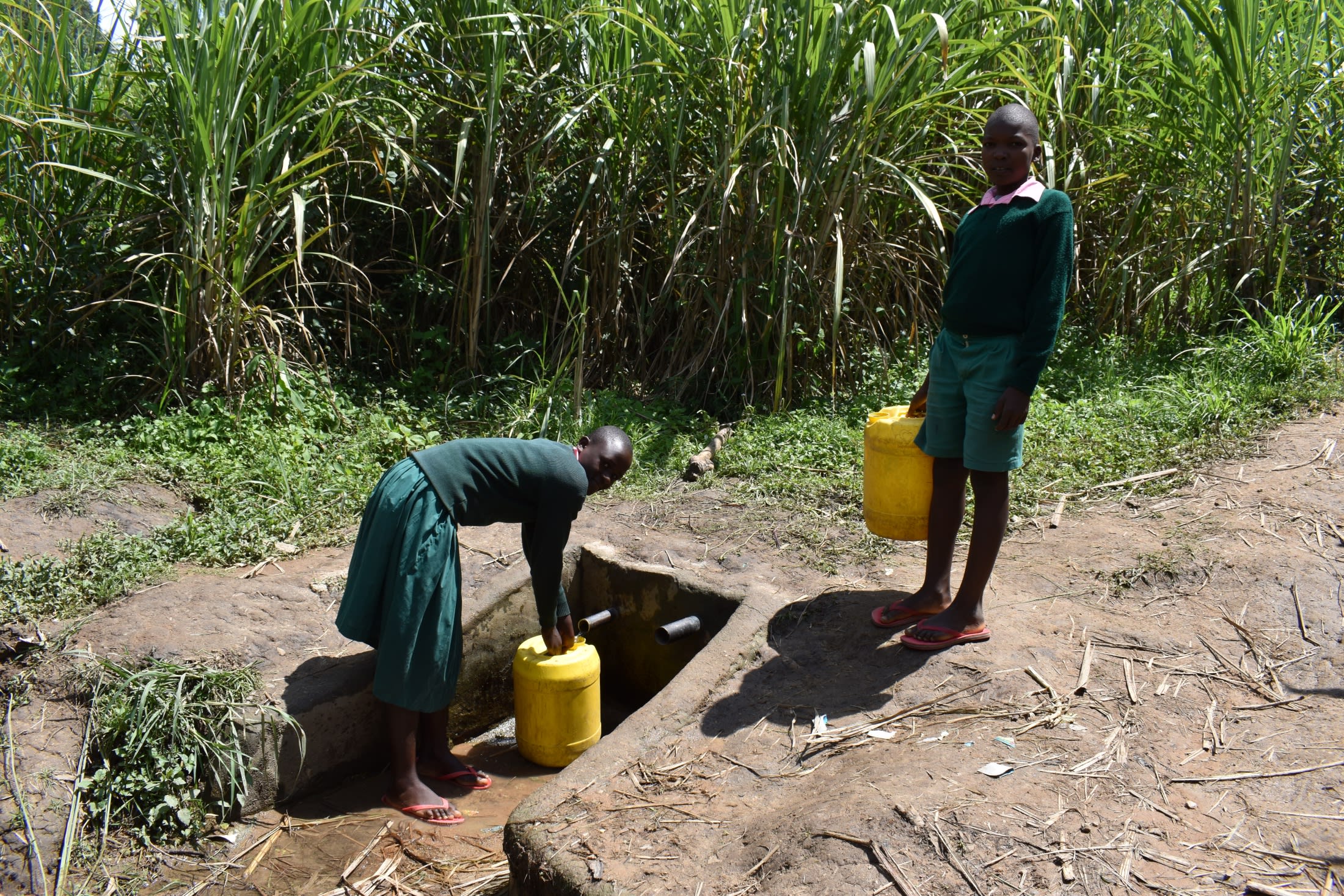
Several hazards await students attempting to collect water. Access is challenging, especially during the rainy season when the surrounding area becomes slippery and dangerous. The spring is overcrowded because it serves as the primary water source for both the school and the surrounding community members. The spring is also seasonal with low discharge, causing everyone to wait for the water in long lines.
Once the students fill their containers, they trek back to school, which is exhausting. Very often, the water students have worked so hard to obtain is contaminated.
Drinking contaminated water often leaves students suffering from water-related illnesses such as diarrhea and stomachaches. Students' absences cause them to fall behind academically, which can be devastating in the long run. And teachers, too, end up afflicted with debilitating water-related illnesses.
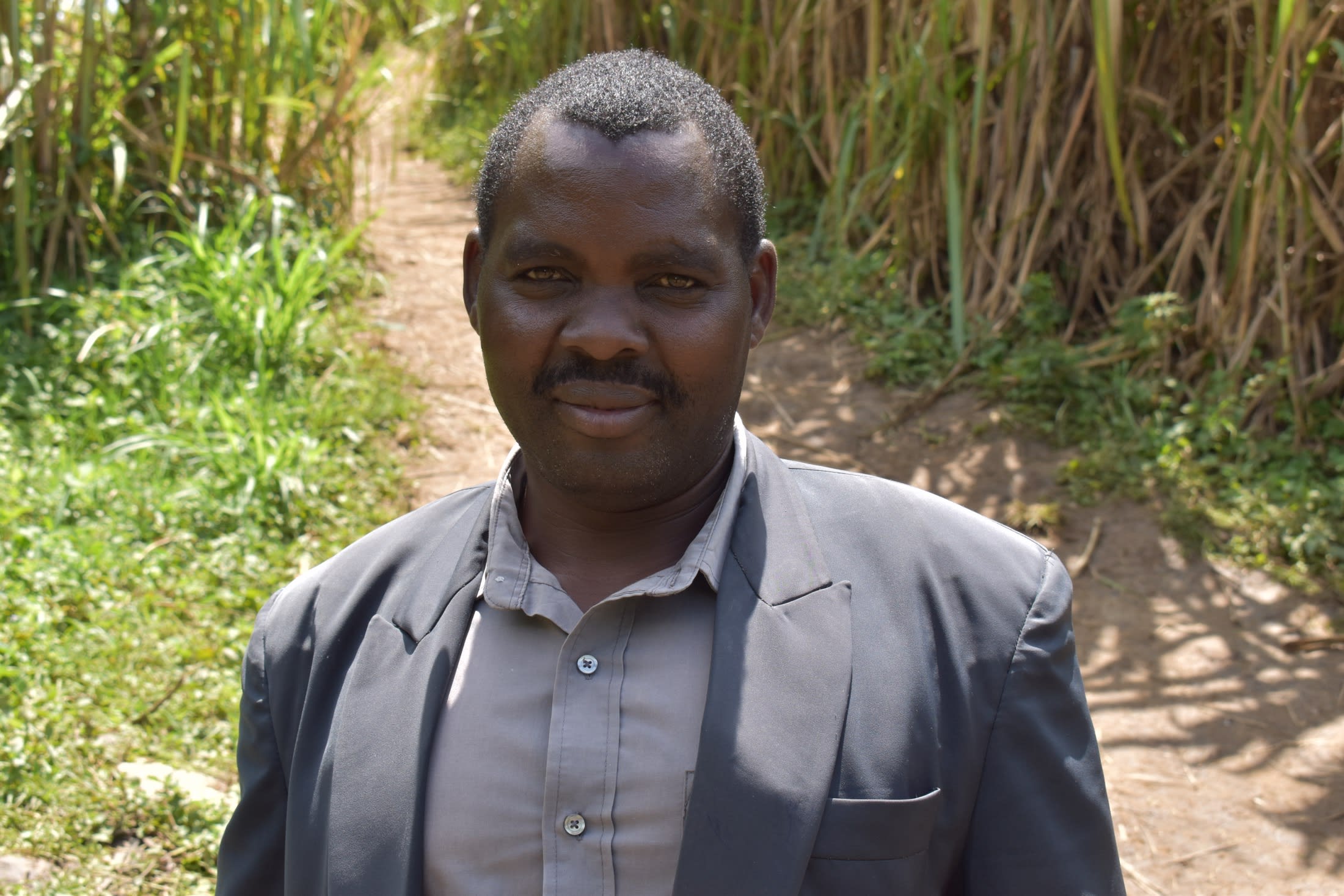
"As a teacher, I have lost momentum to be in school because most of the time [I] am in [the] hospital ailing and my family has paid a lot of money for my medication," said teacher Philip Sindoni (shown above).
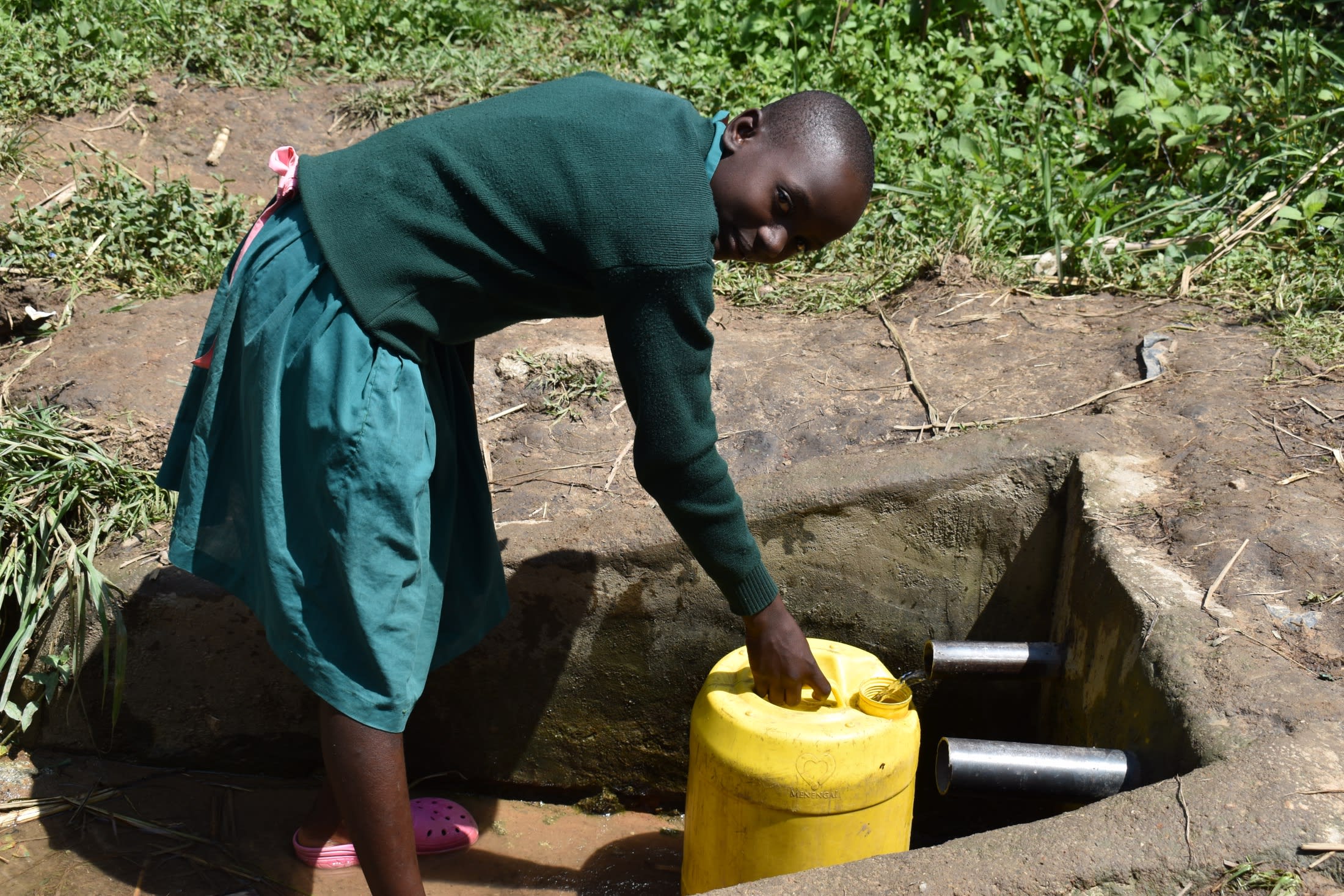
Student Phyllis C. (shown collecting water at the spring above), 12, shared, "Most of the time [I] am in [the] hospital, which leads to being absent in school. I have lost morale [since] my performance has really dropped."
The students of Muchanja need a reliable, safe water source that will save them valuable time and enable them to learn and work towards brighter futures.
What We Can Do:
New Well
We conducted a hydrogeological survey at this school and the results indicated the water table beneath it is an ideal candidate for a borehole well. Due to a borehole well's unique ability to tap into a safe, year-round water column, it will be poised to serve all of the water needs for this school's large population, even through the dry months.
The school will help collect the needed construction materials such as sand, rocks, and water for mixing cement. They will also provide housing and meals for the work team, in addition to providing local laborers. We will complement their materials by providing an expert team of artisans and drilling professionals, tools, hardware, and the hand-pump. Once finished, water from the well will then be used by the school's students and staff for drinking, handwashing, cooking, cleaning, and much more.
Handwashing Stations
The student health club will oversee the two new handwashing stations we will provide, and make sure they are kept clean and in working condition. The club leaders will fill the handwashing stations with water daily and make sure they are always supplied with a cleaning agent such as soap or ash.
VIP Latrines
We will construct two triple-door latrine blocks using local materials that the school will help gather. Three doors will serve the girls and three doors will serve the boys. All of these new latrines will have cement floors that are designed to be easy to use and to clean. And with a borehole right on school property, there should be enough water to keep them clean.
Training on Health, Hygiene and More
We will hold a one-day intensive training session with students, teachers, and parents. This training will cover a wide range of topics including personal and environmental hygiene; and the operation and maintenance of the borehole, latrines, and handwashing stations. There will be a special emphasis on handwashing.
Our team of facilitators will use a variety of methods to train, including participatory hygiene and sanitation transformation, and asset-based community development. We will initiate a student health club, which will prepare students to lead other pupils into healthy habits at school and at home. We will also lead lectures, group discussions, and provide illustrative handouts to teach health topics and ways to promote good hygiene practices within the school including handwashing and water treatment. We will then conduct a series of follow-up trainings before transitioning to our regularly scheduled support visits throughout the year.
We and the school strongly believe that all of these components will work together to improve standards at this school, which will help lead to better student academic performance and will help unlock the opportunity for these students to live better, healthier lives.





 Borehole Well and Hand Pump
Borehole Well and Hand Pump
 Rehabilitation Project
Rehabilitation Project












